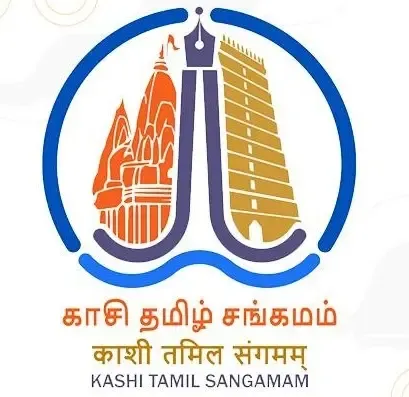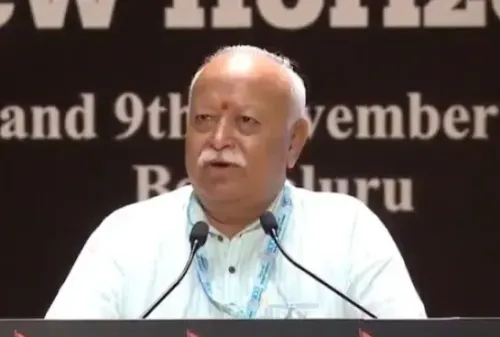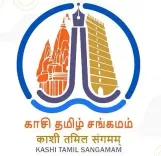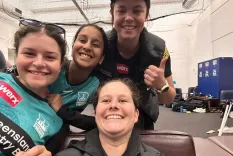What were the Outcomes of the Meeting on the Centre’s Port Restrictions on Bangladeshi Goods?
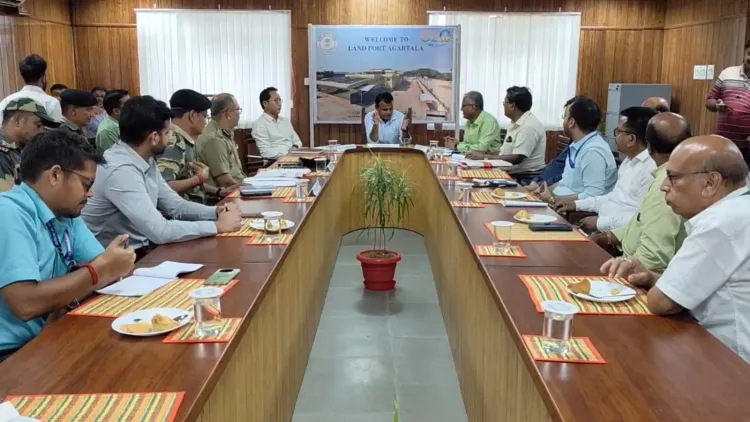
Synopsis
Key Takeaways
- Meeting held at ICP Agartala to discuss new port restrictions.
- DGFT restrictions apply to certain imports from Bangladesh.
- Essential goods remain unaffected by the new measures.
- Local trade representatives expressed support for compliance.
- Tripura's trade dynamics with Bangladesh are shifting significantly.
Agartala, May 19 (NationPress) Just two days following the Central government's announcement of port restrictions on certain imports from Bangladesh to India, a significant meeting took place at the Integrated Check Post (ICP) in Agartala to deliberate on the enforcement of these limitations.
The Director of Tripura’s Industries and Commerce Department, Shailesh Kumar Yadav, convened a meeting at the ICP located along the India-Bangladesh border, where discussions revolved around the notification from the Directorate General of Foreign Trade (DGFT) that imposed restrictions on specific imports, including readymade garments and processed food items from Bangladesh.
A senior official from the ICP noted that the discussions primarily focused on the operational and procedural aspects following the DGFT announcement made on Saturday (May 17).
Yadav informed attendees that essential imports such as fish, LPG, stone chips, and edible oil would not be affected by the DGFT notification. Trade representatives appreciated this measure, viewing it as beneficial for national interests, and expressed their commitment to adherence.
Officials from the Customs Department, Border Security Force, Immigration, and representatives from traders' associations participated in the meeting. The DGFT notification indicated that the import of all kinds of ready-made garments from Bangladesh would not be permitted via any land port, allowing only entry through Nhava Sheva and Kolkata seaports.
The announcement also stated that imports of fruit and fruit-flavored carbonated drinks, processed food, cotton and cotton yarn waste, plastic, and PVC finished products, except for certain inputs for local industries, as well as wooden furniture, will not be allowed through any Land Customs Stations (LCSs) and Integrated Check Posts (ICPs) in Assam, Meghalaya, Tripura, and Mizoram, as well as LCS Changrabandha and Fulbari in West Bengal.
However, the restrictions do not apply to the importation of fish, LPG, edible oil, and crushed stone from Bangladesh, according to the DGFT notification.
Tripura’s Industries and Commerce Minister, Santana Chakma, recently noted a rise in imports from Bangladesh into Tripura, while exports from the northeastern Indian state to the neighboring country have significantly declined in recent years.
The Minister mentioned that Tripura imported commodities worth Rs 636.72 crore from Bangladesh for the 2022-23 financial year, with an increase to Rs 703.67 crore in 2023-24, and Rs 625.14 crore till February of the current fiscal year (2024-25).
In contrast, Tripura's exports have seen a decrease, valued at Rs 121.37 crore in 2022-23, Rs 12.31 crore in 2023-24, and Rs 50.07 crore till February of the current fiscal year (2024-25).
Chakma also stated that out of the nine Land Customs Stations (LCSs) along the 856 km India-Bangladesh border adjacent to Tripura, eight are currently operational, facilitating trade and cross-border movement of individuals through these stations.
To enhance trade, tourism, and other economic activities, the Central government has previously established two Integrated Check Posts (ICPs) along the border, one in Akhaura near Agartala (in West Tripura district) and another in Srimantapur in Sepahijala district.
These multi-purpose ICPs were also set up at Meghalaya's Dawki-Tamabil and Assam's Sutarkandi-Sheola trading points. The Agartala-Akhaura ICP is the second largest trading point along the India-Bangladesh border, following the Petrapole (India)-Benapole (Bangladesh) ICP in West Bengal, measured by the annual trade value.

